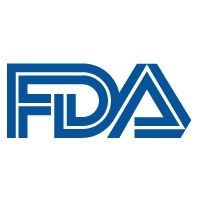Article
Diabetes Drug's Cancer Risk Affirmed, FDA Says
Author(s):
Results of a 10-year study on bladder cancer risk with pioglitazone might be better than the five-year results led the US Food and Drug Administration to re-affirm that the danger is real--though slightly less than the preliminary data showed.

Patients who take pioglitazone (Actos/Takeda) to control their diabetes have long been warned the drug comes with an apparent risk of bladder cancer.
Pioglitazone, also sold as a generic, has been the focus of a 10-year prospective cohort study in diabetic patients who are in the Kaiser Permanente of Northern California (KPNC) database.
Updating its initial September 2010 warning, the US Food and Drug Administration (FDA) today announced a labeling change to include the results of more recent data that confirm that danger. The agency actually found the risk was slightly lower than the five-year results indicated, but a risk nonetheless.
According to the FDA, the study included members of the KPNC diabetes registry between January 1, 1997, and December 31, 2002. The patients were followed until December 31, 2012. In June 2011, the FDA issued a Drug Safety Communication to inform the public about the five-year interim study results, which found no significant increase in the risk for bladder cancer in patients ever exposed to pioglitazone compared to patients never exposed to pioglitazone (hazard ratio [HR]=1.2; 95% confidence interval [CI]=0.9-1.5).
However, the FDA noted, the risk of bladder cancer increased with increasing dose and duration of pioglitazone use.
Today’s announced labeling change is based on the FDA review of the final 10-year results of this study.
That included a total of 158,918 patients who never took pioglitazone (never users) and 34,181 patients who had taken pioglitazone at some point (ever users). Never users were followed for an average of 8.9 years, whereas ever users were followed for an average of 6.1 years. The investigators identified 1,075 newly diagnosed cases of bladder cancer in never users and 186 cases in ever users.
Ever use of pioglitazone compared to never use of pioglitazone was not associated with an increased risk for bladder cancer, with a fully adjusted HR of 1.06 (95% CI=0.89-1.26). The study also suggested a modest trend towards higher risk with increasing duration of use, but this trend was not statistically significant.
Compared to the interim five-year results, these final 10-year results found weaker associations that were not statistically significant. However, the directions of the associations remained unchanged, the FDA noted.
The full labeling update is in a document called, “FDA Drug Safety Communication: Updated Review Concludes that the Use of Type 2 Diabetes Medicine Pioglitazone May Be Linked to an Increased Risk of Bladder Cancer.”
Related Coverage:




